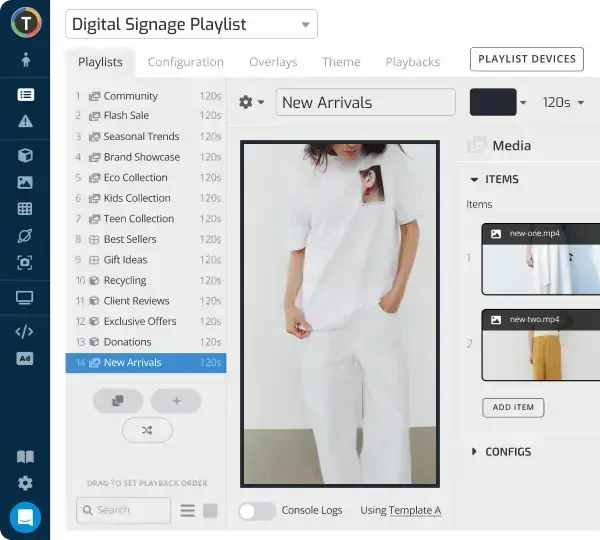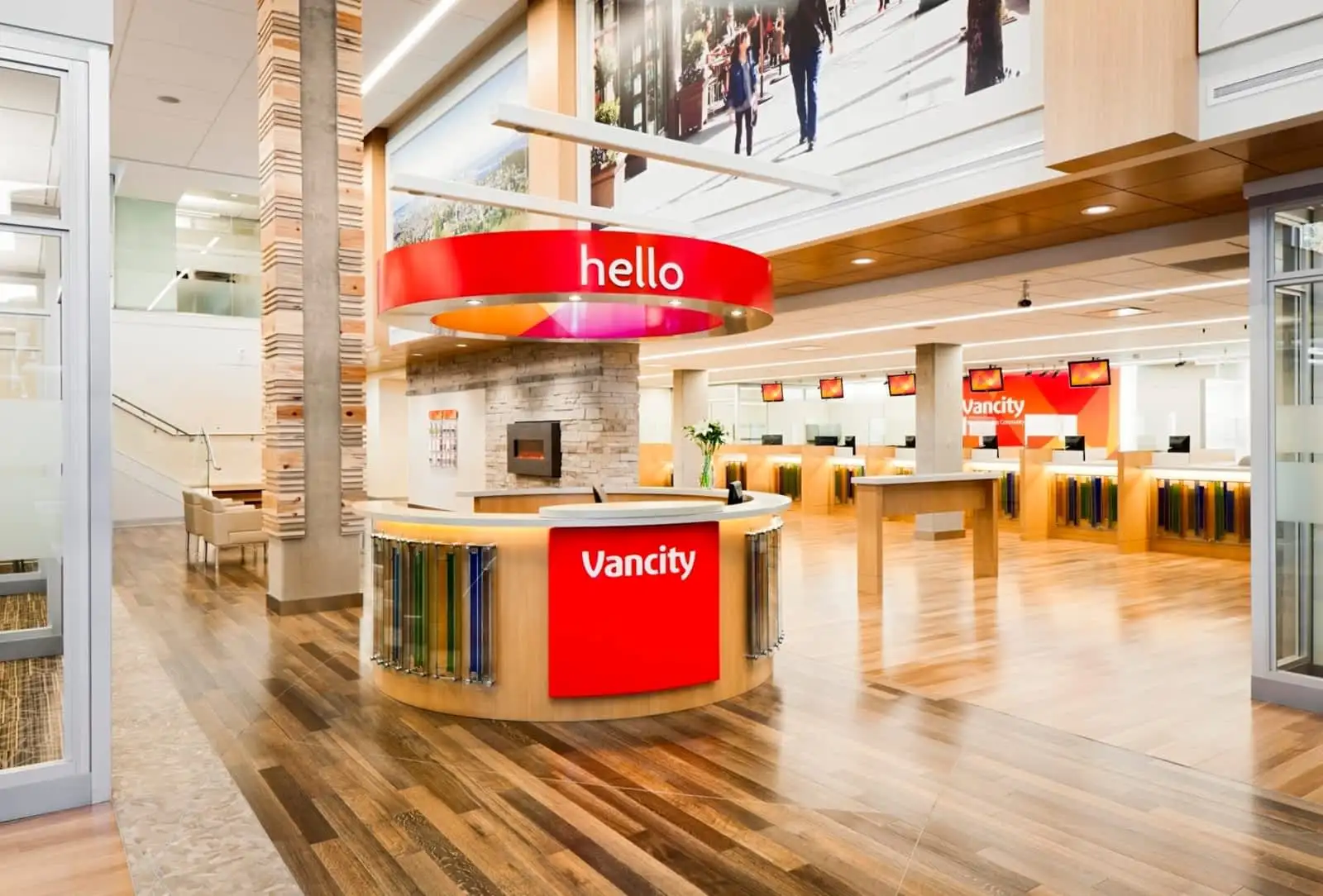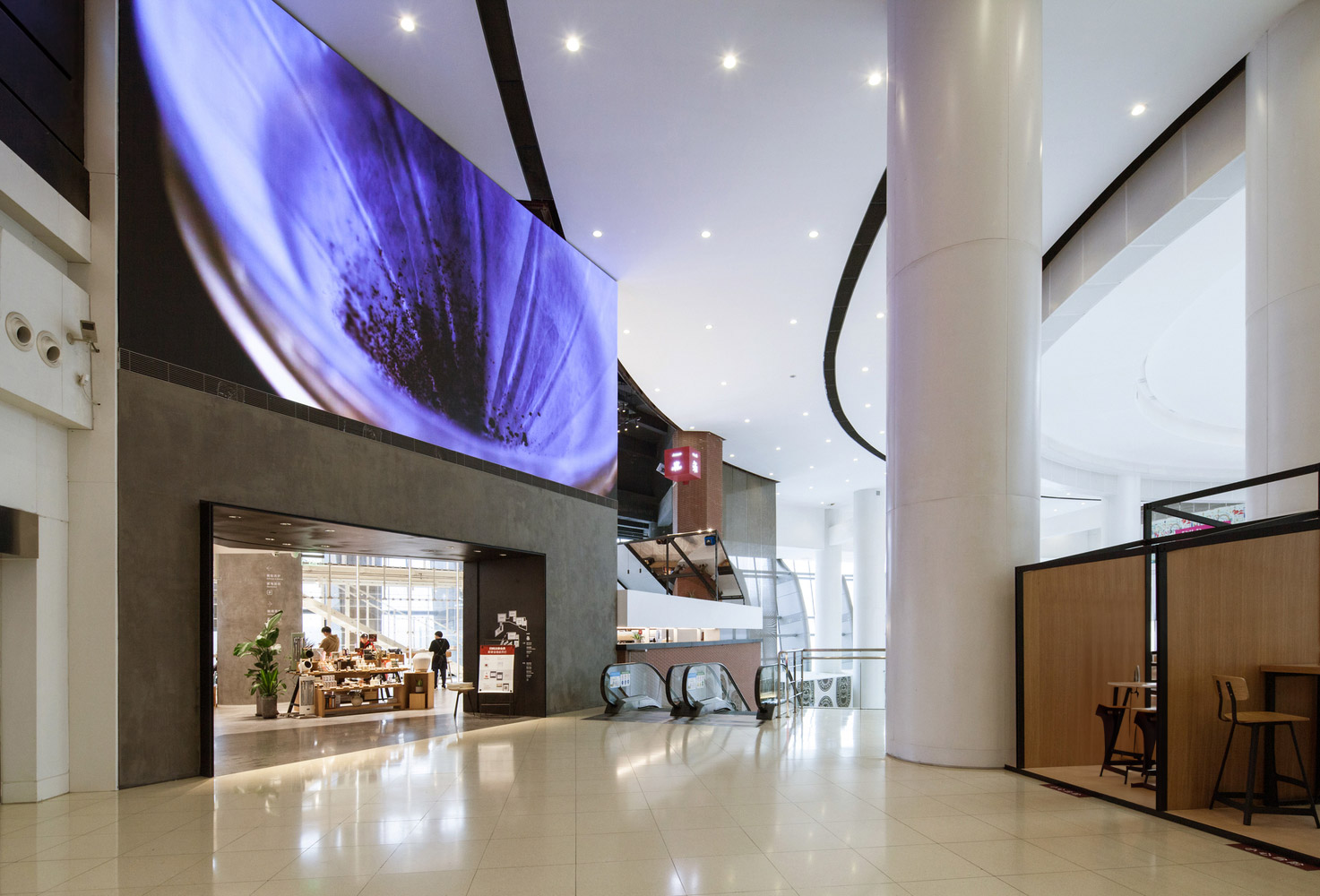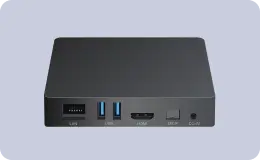The Untold Potential of Hospitality Kiosks: Overcoming Obstacles to Reap Benefits
WRITTEN BY: TelemetryTV, 04-05-2024
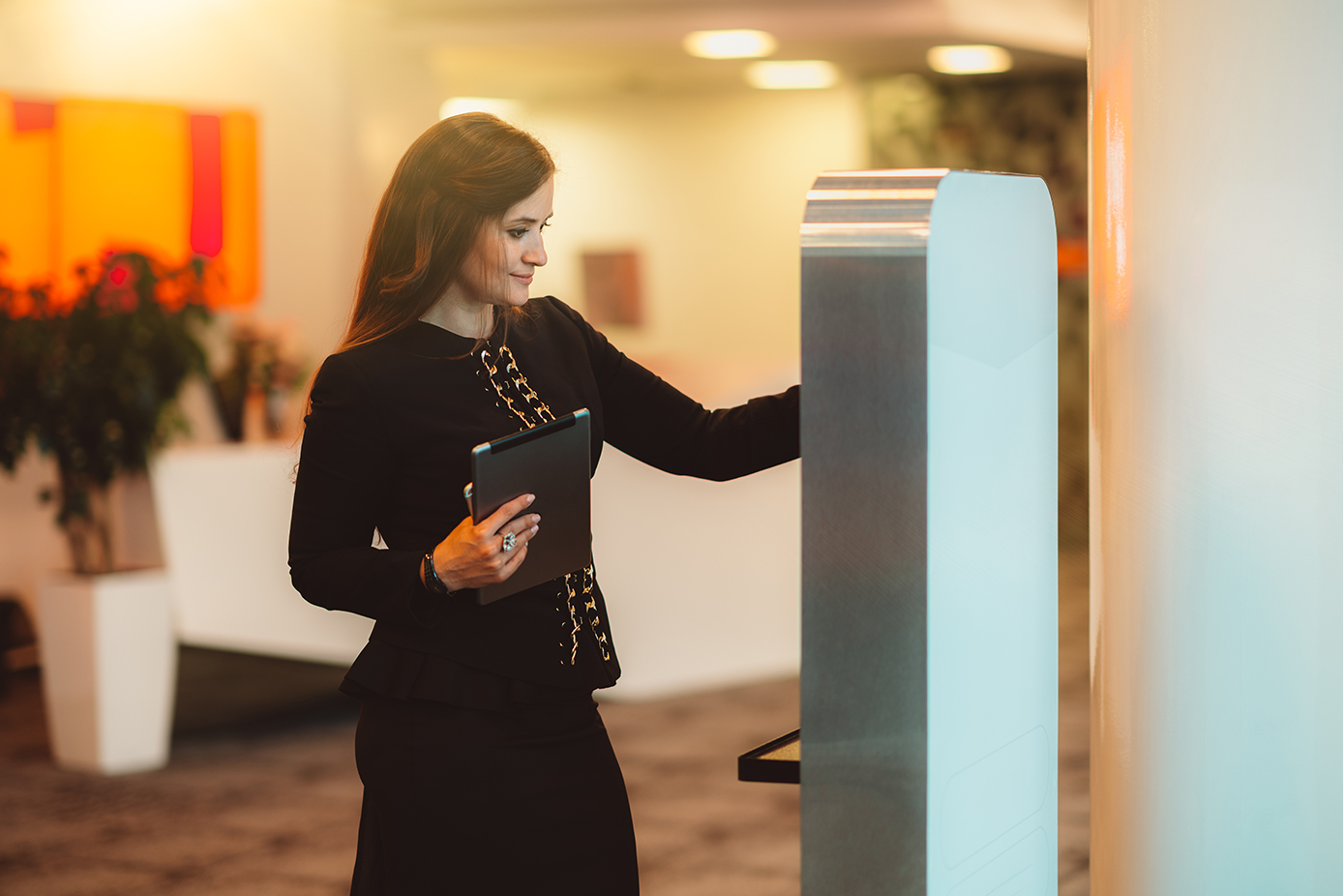
Hospitality kiosks, commonly found in hotels, resorts, and other accommodation facilities, offer more than just isolated services. They merge convenience, efficiency, and an enhanced guest experience. From interactive digital displays to non-interactive information boards, they serve assorted purposes and present substantial benefits. These advantages encompass improved guest experience, increased booking opportunities, and enhanced operational efficiency. Keep reading to understand how your hospitality business can fully exploit kiosks.
Types of Digital Kiosks in Hospitality and their Benefits
Hospitality kiosks come in various types, each offering distinct benefits to guests and business owners alike. Let's explore the different kinds of kiosks and the advantages they bring.
Information Kiosks
These kiosks supply vital information about the facilities, services, or the establishment, enhancing the guest experience by making it more informative and efficient. For hospitality business owners, these kiosks serve as a virtual concierge, providing essential information that can increase bookings and improve guest satisfaction.
Self-check-in Kiosks
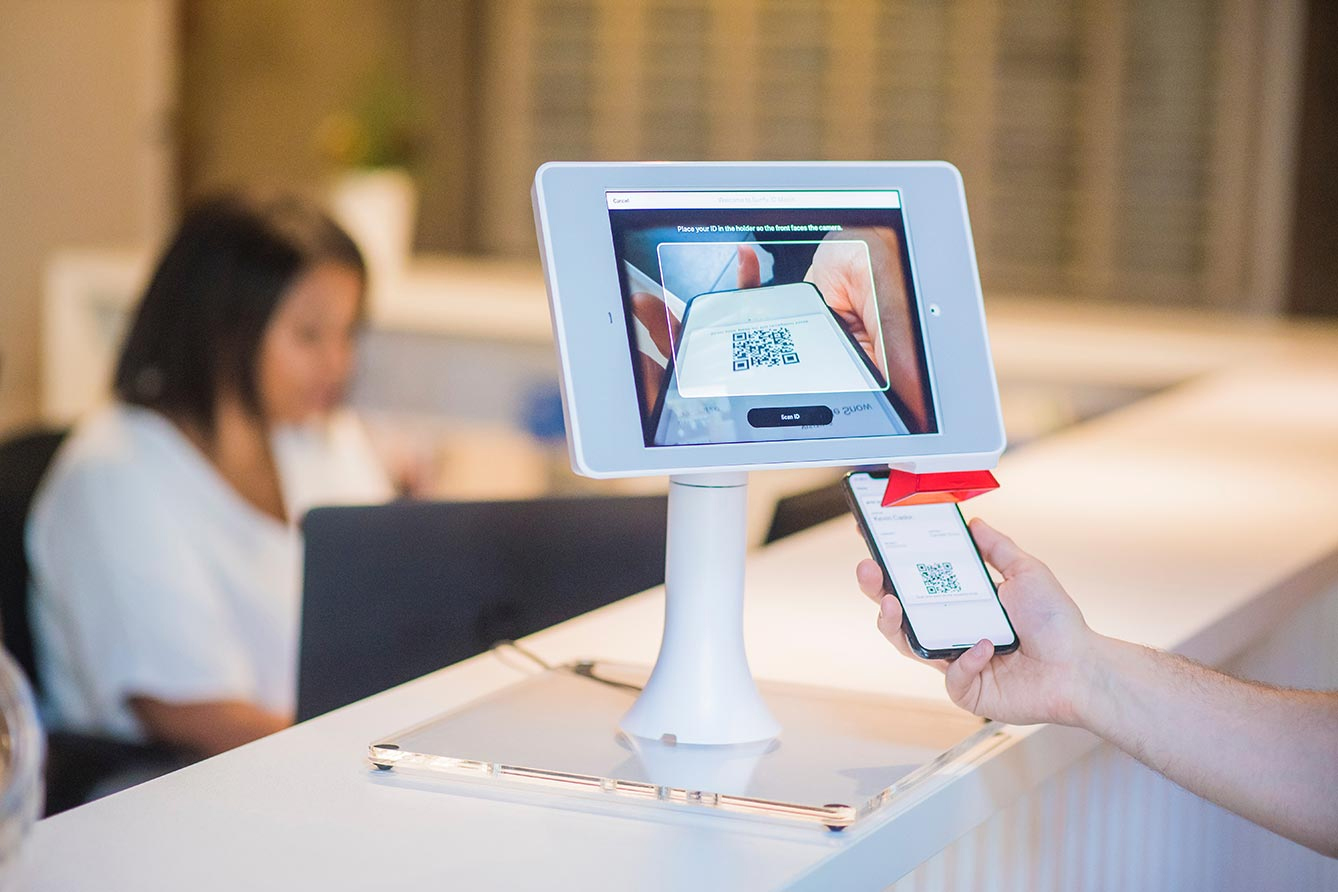
Self-check-in kiosks are particularly beneficial for budget accommodations like hostels, motels, and capsule hotels. These places often have a small staff and high guest turnover. The kiosks allow guests to check in on their own, reducing labor costs and improving efficiency. For busy establishments, these kiosks can expedite the check-in process, minimize queues, and enhance guest satisfaction.
Self-service Booking Kiosks
Self-service booking kiosks simplify the reservation process for additional hotel services like conference rooms, spas, dining, and more. They streamline operations, reducing the need for staff involvement in these bookings. For hotel owners, this leads to a more efficient reservation process, freeing up staff time for other responsibilities, and may enhance customer satisfaction due to the convenience of self-service bookings.
Wayfinding Kiosks
These kiosks simplify navigation in large hospitality environments by offering maps and directions. They guide guests to their desired locations within a resort or hotel complex. By facilitating easier navigation, they enhance the guest experience. Hospitality owners also benefit as these kiosks can direct guests to specific amenities or facilities, potentially boosting usage.
Digital Signage Kiosks
Digital signage kiosks use large digital displays for advertising, promoting available rooms or services, or providing dynamic content related to the establishment or local attractions. They offer a flexible and eye-catching way to communicate with guests, which can lead to increased bookings, enhanced brand recognition, and improved guest engagement.
Loyalty Program Kiosks
These kiosks enable guests to register, manage their loyalty program accounts, check their points, and redeem rewards. Such features directly benefit owners of multi-location hospitality businesses by promoting guest loyalty and encouraging repeated visits within their chain.
Challenges and Solutions
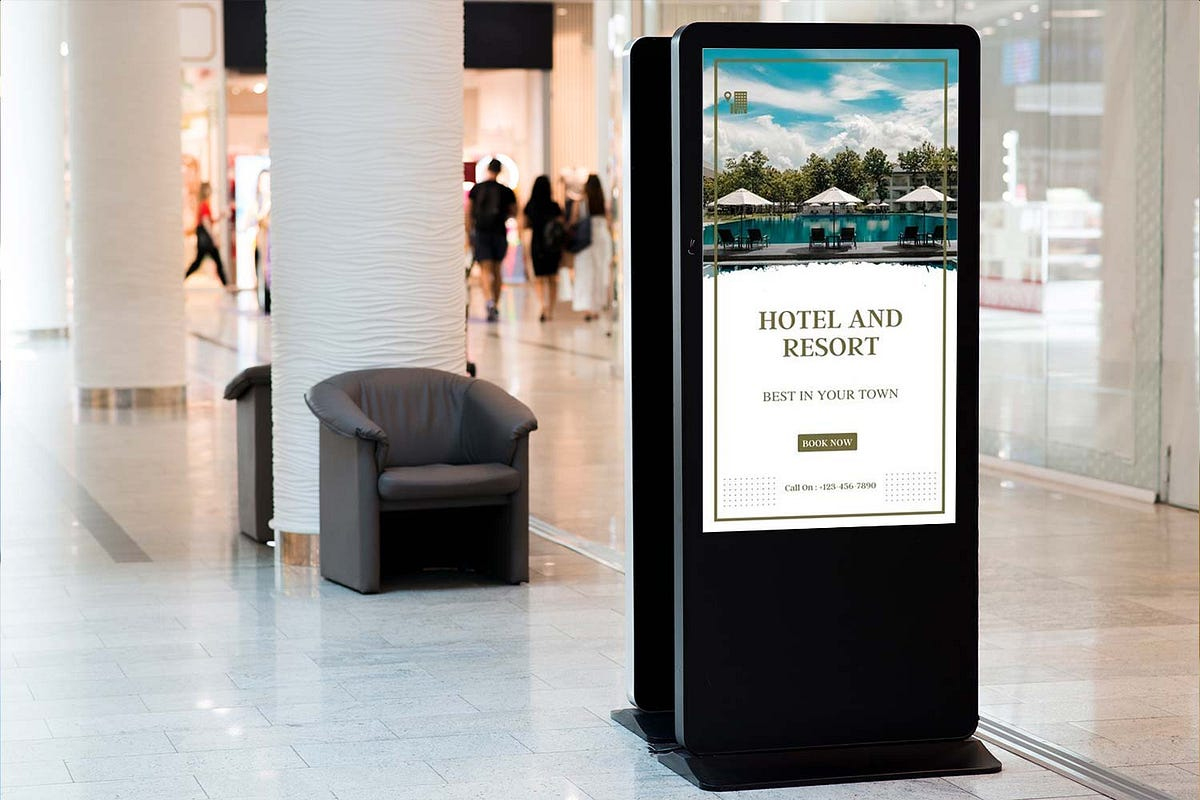
Despite their various advantages, hospitality kiosks face certain hurdles such as the complexities of managing and monitoring them remotely, frequent updates, and the implementation of bespoke applications. These challenges necessitate a robust digital framework that can facilitate remote operations, assure security, and uphold the kiosks' functionality through timely updates.
Remote Management and Monitoring
Advanced software solutions like TelemetryTV permit the remote management and monitoring of kiosk systems, ensuring they operate smoothly, display the correct information, and remain secure against unauthorized access or cyber threats.
Timely Updates and Custom App Deployments
Consistent updates are essential for maintaining the functionality and security of kiosk software. Custom app deployments can be simplified through TelemetryTV’s PaaS capabilities, enabling hospitality businesses to rapidly push new features or content to their kiosks.
User Experience and Accessibility
Crafting intuitive and accessible interfaces is key to ensuring that all guests can take advantage of the services offered by hospitality kiosks. This involves regular usability testing and updates based on guest feedback.
Data Security and Privacy
Guaranteeing guest data protection is critical for kiosks handling transactions. This is achieved through strong encryption, secure payment gateways, and strict adherence to data protection regulations, providing a sturdy defense against data breaches.
Overcoming Guest Resistance to Technology
To overcome guest resistance to new technology, hospitality businesses should educate guests, provide clear instructions, and highlight the kiosks' benefits. On-premises support, an intuitive design, and gradual implementation can help guests adapt.
Strategies for Kiosk Implementation in Hospitality
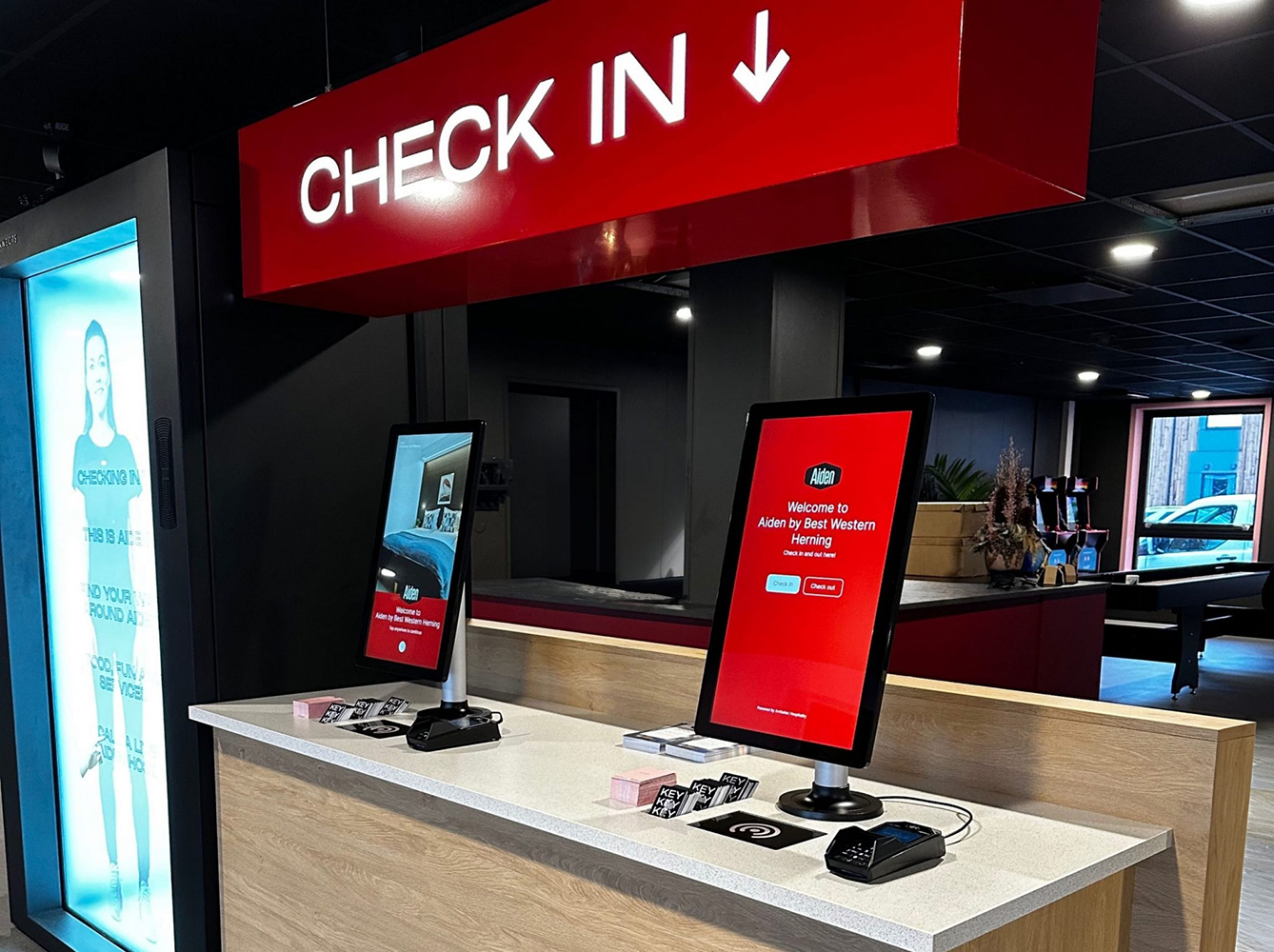
Executing a successful kiosk deployment in the hospitality industry necessitates a comprehensive plan. This involves setting clear objectives and benchmarks, choosing the right type of kiosk, deciding on the best location and design, integrating with existing hospitality systems, and utilizing the appropriate software for content and device management.
Setting Objectives and Benchmarks
At the heart of a successful kiosk implementation strategy is the precise articulation of its goals. Hospitality businesses must define what they aim to accomplish—whether it's enhancing guest experience, speeding up transactions, or promoting specific services. Additionally, establishing measurable benchmarks, such as shorter check-in times, increased revenue per kiosk, or higher guest satisfaction ratings, allows for assessing the kiosks' effectiveness in achieving the business's strategic objectives.
Selecting the Appropriate Kiosk
The type of kiosk chosen should be in line with the hospitality business's set goals. Whether it's self-service check-in, information kiosks, digital signage, or wayfinding kiosks, each serves unique purposes and meets various guest needs. Understanding the target audience and their preferences enables a more informed selection process, ensuring the kiosks augment the guest experience.
Considerations for Location and Design
The positioning of kiosks within a hospitality establishment is critical. Kiosks placed strategically can attract more users, increase visibility, and guarantee ease of access. Considerations should include high-traffic areas, proximity to related services, and alignment with the overall facility layout to encourage interaction and use.
Integration with Existing Hospitality Systems
For kiosks to be most effective, they need to be smoothly integrated with the hospitality business's existing systems. This includes reservation management, point-of-service (POS) systems, customer relationship management (CRM) software, and more. Integration ensures real-time data sharing, a consistent guest experience across different interaction points, and simplifies operations.
Software for Content and Device Management
The core of efficient kiosk operation is sturdy software that facilitates remote management of content and device functionality. TelemetryTV comes in handy here as it offers powerful capabilities for content updates, custom app development, device monitoring, and analytics. By utilizing TelemetryTV, hospitality businesses can ensure their kiosks display the most up-to-date information, function optimally, and provide insights into usage patterns and guest preferences.
Conclusion
Hospitality kiosks combine technology with conventional practices to enhance service and operations. They deliver an engaging guest experience through features like self-service check-in and digital signage, and they also boost revenue, optimize staffing, and yield guest insights. However, they do present challenges, including remote management, data security, and user-friendliness. Addressing these challenges through careful planning, suitable technology, and seamless integration can unlock the immense potential of hospitality kiosks, benefiting both hospitality businesses and guests.
